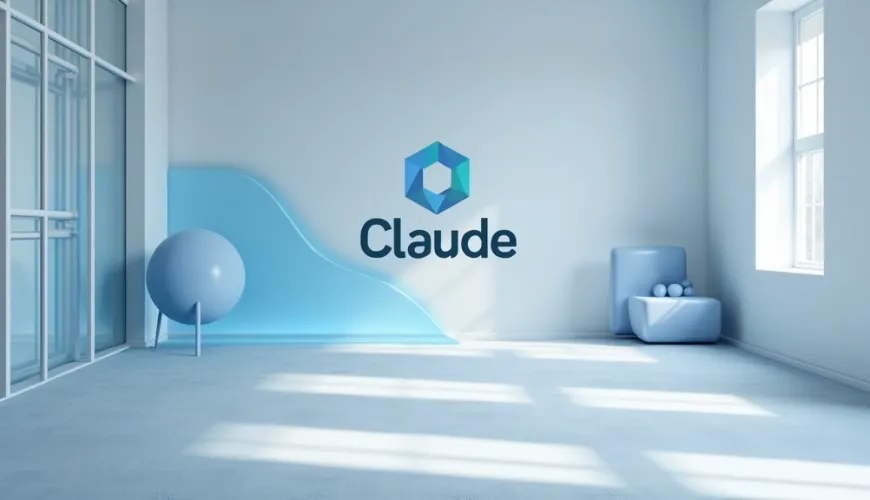If you've ever wished your team could find answers instantly without digging through countless files or Slack threads, you're not alone. That's exactly the kind of frustration an AI knowledge base is built to solve — and it's changing how teams work, learn, and collaborate.
In today's fast‑paced digital landscape, managing company information can feel like herding cats. Documents live in Google Drive, conversations are scattered across messaging apps, and critical know‑how is locked inside employees' heads. What if you could centralise all that knowledge and make it instantly accessible, searchable, and even conversational?
That's where AI‑powered knowledge management steps in. This article explains what an AI knowledge base is, how it works, and why it might be your next business super‑power.
TL;DR
• An AI knowledge base stores all your company know‑how in one searchable hub.
• AI models let staff ask questions in plain English and receive instant answers.
• Faster onboarding, fewer silos, and happier customers save real money.
What Is an AI Knowledge Base?
An AI knowledge base is a centralized repository of information that uses artificial intelligence to organize, retrieve, and deliver content in a smart, intuitive way. Unlike traditional knowledge bases, which rely heavily on manual tagging and hierarchical folder systems, AI-driven platforms use natural language processing (NLP), machine learning, and semantic search to understand context.
In simpler terms, these systems learn from your data and let you interact with your company's knowledge in the way you'd talk to a human — asking questions, making requests, and getting relevant answers fast.
Imagine asking, "How do I onboard a new client?” instead of clicking through folders labeled "Process," "HR," or "Sales." An AI knowledge base will not only find the most relevant documents but also summarize or explain them.
Why AI Knowledge Bases Are Game Changers
The perks of switching to an AI knowledge base platform go way beyond just saving time. Businesses are increasingly turning to AI to gain a competitive edge, and knowledge management is no exception.
Here's why it matters:
- Instant access to answers – No more bottlenecks waiting on coworkers to share info.
- Smarter search – AI doesn't just match keywords; it understands intent.
- Ongoing learning – The more you use it, the better it gets at serving you.
- Reduced onboarding time – New employees can get up to speed faster.
- Fewer silos – Information is shared across teams and departments effortlessly.
According to a report by McKinsey, employees spend nearly 20% of their time searching for internal information or tracking down colleagues who can help with specific tasks. That's a full day each week that could be saved with smarter tools.
How AI Knowledge Base Software Works
Behind the scenes, AI knowledge base software uses a combination of technologies to make your information smarter:
- Natural Language Processing (NLP): Understands the meaning behind your queries even if you don't use the exact keywords.
- Machine Learning: Learns from how users interact with the system and improves responses over time.
- Semantic Search: Goes beyond keyword matching to understand concepts and relationships.
- Contextual Awareness: Takes into account who is asking the question, previous queries, and the current task.
Let's say your customer support agent asks, "What's our refund policy?” Instead of pulling up a generic document, the system can fetch the latest version relevant to their department and role, or even draft a response to a customer inquiry based on previous tickets.
Real-Life Use Cases of AI Knowledge Base Tools
Customer Support
Companies like Zendesk and Freshdesk now integrate AI knowledge features to help agents find accurate answers in real time. This reduces resolution times and improves customer satisfaction. For a real‑world chatbot example, see how promotions are automated with Kupon AI.
Internal Team Collaboration
Startups and growing companies use platforms like Notion, Guru, and Confluence enhanced with AI to streamline internal knowledge sharing. Employees no longer have to ask around for a link or document—they just type a question and get an answer. Visual assets can even be generated on‑demand with the AI LinkedIn Photo Generator.
Sales Enablement
Sales teams armed with access to real-time product knowledge, pricing guides, and customer pain points can close deals faster. AI tools can even suggest next‑best actions based on data patterns, then tailor the tone with dynamic ChatGPT temperature settings.
How to Build an AI Knowledge Base from Scratch
You don't need a team of data scientists or a million-dollar budget to build an AI knowledge base. Thanks to platforms like Claila, it's more accessible than ever.
Here's a simple step-by-step guide to get started:
- Audit your existing knowledge – Round up internal documents, SOPs, FAQs, and training materials.
- Choose the right platform – Look for AI knowledge base tools that integrate with your workflows and support natural language queries.
- Organize and upload – Use categories and tags initially, even though AI will learn and adapt.
- Train the AI – Let the system ingest your data and start interacting with it. The more you use it, the smarter it becomes.
- Encourage adoption – Get your teams involved. Show them how asking the right question gets the right answer—much like the conversational flows showcased in ChaRGPT.
Tools like Claila allow teams to plug in their data and get started with AI-powered responses in minutes. With multi-model support—including ChatGPT, Claude, Mistral, and Grok—you can tailor your knowledge experience to suit different needs and industries.
Top Features to Look For in AI Knowledge Base Platforms
Not all platforms are created equal. When shopping for an AI knowledge base platform, keep an eye out for these high-impact features:
- Multi-language support – Perfect for global teams.
- User role customization – So only the right eyes see sensitive data.
- Integrations with tools you already use – Think Slack, Google Workspace, or Notion.
- Analytics and usage tracking – To see what people are searching for (and not finding).
- AI-generated summaries – So users don't have to read entire documents.
A well-designed platform should feel intuitive, like having a team expert on-call 24/7.
Benefits of AI-Powered Knowledge Management Over Traditional Methods
Before AI came into play, knowledge management was mostly manual. You had to tag documents, decide on folder names, and constantly update outdated files. Worst of all, these systems didn't scale well. AI changes that.
With AI-powered knowledge management, the process becomes dynamic. The system can update itself based on changes in your business, flag outdated content, and even auto-generate new articles based on recurring questions.
Imagine a company that sees dozens of customer queries around a new feature. Instead of manually writing up a guide, the AI can pull details from product docs and generate a helpful how-to.
Here's where automation truly meets intelligence.
Common Myths About AI Knowledge Base Tools
Despite their growing popularity, some businesses still hesitate to adopt AI for internal knowledge sharing. Let's bust a few common myths:
- "It's too expensive” – Many tools use a freemium model or offer scalable pricing for small teams.
- "AI replaces human jobs” – Not true. It augments your team, allowing them to do more creative, high-value work.
- "It's complicated to set up” – Platforms like Claila are designed for ease of use, even for non‑technical users. (For comparison, see how content‐safety is handled in the NSFW AI video generator project.)
- "Our data is too messy” – AI thrives in unstructured environments. In fact, it often performs better than traditional databases in parsing raw information.
How Claila Makes AI Knowledge Bases Easy and Efficient
Claila stands out as a go-to AI knowledge base platform because it brings together the best of multiple worlds.
With access to top AI models like OpenAI's ChatGPT, Anthropic's Claude, and xAI's Grok (backed by Elon Musk), Claila allows users to interact with data in whatever way works best for them — whether that's typing in a question or using visual prompts for AI-generated content.
What's more, Claila isn't just about storing information. It includes powerful productivity tools like AI document writing, summarization, and even image generation — all under one roof.
So if you're looking to build an AI knowledge base that evolves with your business, Claila is a solid place to start.
The Future of Knowledge Management Is Here
Let's be honest — nobody enjoys chasing down old email threads or searching through five different apps to find a procedure guide. That's where the shift to AI-first knowledge systems makes such a big impact.
AI knowledge base software isn't just a productivity tool; it's quickly becoming a strategic asset. Businesses that can organize and access their knowledge instantly will outpace those still drowning in spreadsheets.
As AI gets smarter, the line between static data and living knowledge blurs. And that's a good thing. Ready to see how fast your team can find answers? Start centralising your know‑how with an AI knowledge base today.



